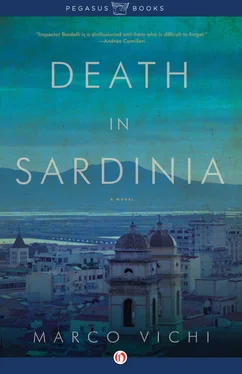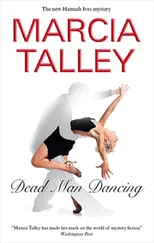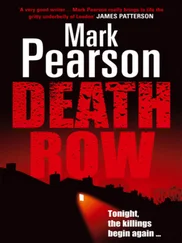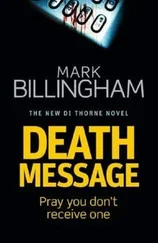Marco Vichi - Death in Sardinia
Здесь есть возможность читать онлайн «Marco Vichi - Death in Sardinia» весь текст электронной книги совершенно бесплатно (целиком полную версию без сокращений). В некоторых случаях можно слушать аудио, скачать через торрент в формате fb2 и присутствует краткое содержание. Год выпуска: 2014, ISBN: 2014, Издательство: Pegasus Books, Жанр: Полицейский детектив, на английском языке. Описание произведения, (предисловие) а так же отзывы посетителей доступны на портале библиотеки ЛибКат.
- Название:Death in Sardinia
- Автор:
- Издательство:Pegasus Books
- Жанр:
- Год:2014
- ISBN:978-1-4804-4794-3
- Рейтинг книги:5 / 5. Голосов: 1
-
Избранное:Добавить в избранное
- Отзывы:
-
Ваша оценка:
- 100
- 1
- 2
- 3
- 4
- 5
Death in Sardinia: краткое содержание, описание и аннотация
Предлагаем к чтению аннотацию, описание, краткое содержание или предисловие (зависит от того, что написал сам автор книги «Death in Sardinia»). Если вы не нашли необходимую информацию о книге — напишите в комментариях, мы постараемся отыскать её.
Death in Sardinia — читать онлайн бесплатно полную книгу (весь текст) целиком
Ниже представлен текст книги, разбитый по страницам. Система сохранения места последней прочитанной страницы, позволяет с удобством читать онлайн бесплатно книгу «Death in Sardinia», без необходимости каждый раз заново искать на чём Вы остановились. Поставьте закладку, и сможете в любой момент перейти на страницу, на которой закончили чтение.
Интервал:
Закладка:
‘No fingerprints on the scissors. They were either wiped clean with a handkerchief or the killer was wearing gloves,’ he said, throwing up his hands. And he added that everything would be analysed and catalogued using the new techniques and procedures developed in the US and the UK, and that-
‘Fine, fine,’ Bordelli interrupted him, convinced that nothing would come of these analyses.
‘When should I drop by?’ he asked Diotivede, calmly walking him to the door.
‘Whenever you like.’
‘Maybe I’ll even give you a hand. I’ve always been fascinated by the idea of opening up dead bodies and pulling out their guts.’
The pathologist heaved a sigh of irritation at that thousandth idiotic quip about his perfectly normal profession. Bordelli knew such comments irked him, but that was precisely why he enjoyed making them. It was fun to see Diotivede tense up for a second like an offended child.
‘I guess you’re right, Inspector. It’s much more fun to be a policeman. You have the pleasure of tracking a man down, slapping handcuffs on him … or maybe even shooting him in the back.’
‘Need a lift home?’
‘I’m happy to get some exercise.’
‘Forget I asked.’
They calmly descended the stairs, side by side, without another word. Outside the front door was a throng of journalists, who immediately tried to get inside. Bordelli raised a hand and said nobody could go upstairs. Anybody wanting any information had to go to police headquarters and wait. The newsmen protested as usual, but in the end they left. Bordelli shook his head.
‘How the hell do they always find out so fast?’ he asked.
‘Maybe it helps that they’re not policemen,’ Diotivede quipped, then waved goodbye and went off towards Santo Spirito.
‘Thanks,’ Bordelli muttered, watching him walk away.
A little boy on a woman’s bicycle bigger than he was came out from Borgo San Frediano, standing on the pedals. He’d attached a folded-up postcard to the frame so that it rattled the rear spokes and sounded like a motorbike. Passing by the front door of Badalamenti’s building, the child shot a glance at the inspector and started pedalling harder. Bordelli followed him with his eyes and watched him disappear beyond Piazza Piattellina. A thousand years ago he too used to put a postcard in his bicycle’s spokes, and hearing the sound now only made him feel old. He ran a hand over his face and pressed his eyeballs with his fingertips. He wasn’t that old, really, but he was certainly too tired to start searching the dead man’s home right now. He realised he wished he had Piras at his side for the investigation. Sticking a cigarette between his lips, he decided at last to put the whole thing off till tomorrow. It wasn’t the kind of murder that made one feel anxious to get things moving, he thought, blowing the smoke towards the sky.
He woke up in the middle of the night after a bad dream and instinctively turned on the light. He looked around the room to reassure himself. Everything was the same as it always was, but the dream left him with a feeling of precariousness that seemed to presage death. It was almost three o’clock. He’d only been asleep for about an hour. His heart was beating wildly. He turned the light off and lay back down. He’d retained no precise image of what he’d just dreamt, and remembered only that he was struggling terribly to free himself from a sort of spider’s web in which he’d got caught. He was hoping to fall back asleep immediately. But, try as he might to keep his eyes shut and not move, his tired brain was still busy thinking about unpleasant and dangerous things.
He was imagining his heart imprisoned between the lungs, contracting and expanding, and it looked to him like a repugnant muscle that after years of spasms wanted only to burst or simply stop. His heart had broken many times, always because of women. The muscle had functioned quietly and well during the war, never asking him for anything. The years had gone by, and he’d suddenly found himself, at fifty-five years of age, feeling as if he’d never actually lived.
Deep inside he never really stopped thinking about death. It was always on his mind, every minute of the day, and had become a sort of habit. At moments he found himself imagining his own death in a variety of different ways. There was no good reason for it; that was just the way he thought. Even at the best of times. Now and then he would become fixated on heart failure, especially when he felt tired, as now. The idea of dying suddenly, without having the time to understand what was happening to you, frightened him even more than death itself.
He was hoping to be conscious at the exact moment at which he went over to the other side. From time to time he would wonder whether his comrades who’d been blown sky high by German mines had had the time to realise anything. He’d made it back from the war alive, but there had been many occasions when he could easily have died. He’d been lucky. It was almost though he was protected by a star in the heavens. In 1941, shrapnel from a British torpedo had breached the wall of the submarine he was in. He’d heard it hiss a centimetre away from his temple and lodge itself in the side of the ladder. He’d gone and dug it out. Inside one of the metal curls a greenish strand of seaweed had got stuck. Wrapping the splinter in a handkerchief, he’d put it in his pocket. He must still have it somewhere.
To take his mind off his beating heart he started thinking about the war, and he remembered the time he was trapped with five of his men in a field of maize under the sudden fire of the German artillery.
They spread out and hit the ground. The earth was shaking violently. They had to prop themselves up on their elbows with bellies raised, tongues pressed hard against palates to keep from biting them, hands over the ears to protect their eardrums from the explosions. The clods of dirt thrown into the air by the mortar shells kept raining down on them without cease. Staccioli and Bordelli were lying next to each other. With each blast they pressed their faces into the ground, and between explosions they exchanged glances and cursed the Nazis. Before exploding, the mortar shells whistled through the air. There was a moment of hell, with grenades falling around them one after another, the earth flying up into the air as if catapulted.
Bordelli closed his eyes and kept his face pressed to the ground until silence returned. All of a sudden he heard a dull thud, like a boulder hitting the ground. He turned towards Staccioli.
‘Did you hear that?’ he asked, but Stacciolo couldn’t hear anything any more. An unexploded shell had fallen on his neck, and his face was buried in the ground. Bordelli just looked at him for a few seconds, suppressing the absurd desire to talk to him. Then he yanked off his friend’s dog tags, not bothering to pull the chain over his head. If the shell had done what it was supposed to do, there wouldn’t have been a shred of either of them remaining.
Very few were as lucky as he. Capo Spiazzi died in the Veneto three weeks before the end of the war because of a moment’s inattention. It was a dark night and, lost in thought, he’d lit a cigarette while standing in front of a window. The German sniper aimed a couple of inches above the flame and hit him square in the forehead. Bordelli heard the glass shatter and ran to see what had happened, and found Capo Spiazzi sprawled across the floor, face up and eyes open. The cigarette had remained between his lips, still lit.
Giannino had died, too. Of gangrene. Bordelli had tried to stop the infection with the tools he had available. He poured two big glassfuls of cordial down his throat, tied a tourniquet of string very tightly just under the knee, then put a plank under his leg and amputated his foot with a hatchet. It took two consecutive, decisive chops. As a disinfectant he used some twenty tablets of sulphamide ground to a fine powder.
Читать дальшеИнтервал:
Закладка:
Похожие книги на «Death in Sardinia»
Представляем Вашему вниманию похожие книги на «Death in Sardinia» списком для выбора. Мы отобрали схожую по названию и смыслу литературу в надежде предоставить читателям больше вариантов отыскать новые, интересные, ещё непрочитанные произведения.
Обсуждение, отзывы о книге «Death in Sardinia» и просто собственные мнения читателей. Оставьте ваши комментарии, напишите, что Вы думаете о произведении, его смысле или главных героях. Укажите что конкретно понравилось, а что нет, и почему Вы так считаете.










